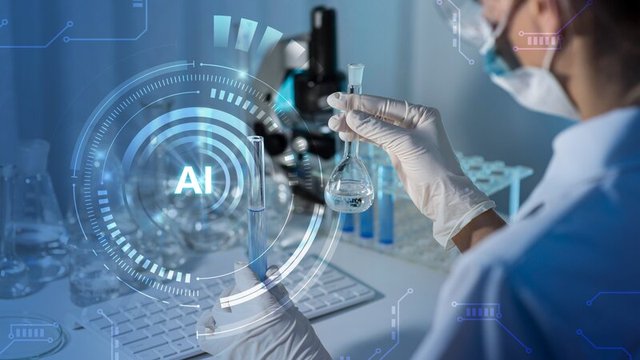
AI and Drugs: How Artificial Intelligence is Accelerating Drug Discovery
June 16, 2025

In recent years, the intersection of ai and drugs development has emerged as one of the most transformative forces in biotechnology. The integration of artificial intelligence (AI) into drug discovery pipelines has dramatically reduced timelines, cut costs, and improved the precision of therapeutic targeting.
Students considering a future in biomedicine or biotechnology will find that expertise in ai and drugs places them at the cutting edge of healthcare innovation.
In this blog, we explore how AI is reshaping drug discovery, highlight key applications, and show how Universidad Europea’s programmes, such as the degree in biomedicine, prepare the next generation of scientists.
Faster Target Identification
Traditionally, identifying a viable drug target involved labour‑intensive laboratory work and often serendipitous findings. With ai and drugs, however, algorithms now analyse vast genomic, proteomic and phenotypic datasets in days rather than years to predict promising molecular targets.
AI-powered platforms such as deep learning networks and natural language processing can review scientific literature and patent filings to suggest novel targets that might otherwise go unnoticed.
This leap in efficiency is especially relevant for students of programs like the Biomedicine degree, which embeds data‑driven research training into its curriculum.
Virtual Screening and Molecular Design
Once candidate targets are validated, the next step in drug discovery is molecule design. ai and drugs has revolutionised virtual screening: AI can now predict how millions of compounds will bind to a target protein and flag high‑potential molecules for synthesis.
Machine‑learning models that have been trained on large chemical libraries can propose entirely novel molecules with optimised binding affinities and desirable drug‑like properties.
For those studying a degree in Biotechnology at Universidad Europea, these AI‑enabled design tools are becoming core laboratory instruments.
Predicting Safety and Efficacy
A major hurdle in the drug development pipeline is safety testing. Historically, many drug candidates fail due to toxicity or poor pharmacokinetics during clinical phases. AI can forecast a candidate molecule’s toxicity profile and metabolic behaviour using predictive models.
By simulating how a compound behaves in silico, AI helps de‑risk development and reduces reliance on early‑stage animal testing. Students versed in ai and drugs techniques are therefore better prepared to lead pharmacological assessments in modern biotech firms.
Personalised Medicine and Biomarkers
The dream of personalised medicine rests on identifying biomarkers that predict patient response to treatments. Through the synergy of ai and drugs, AI analyses multi‑omics data (genomics, proteomics, metabolomics) along with electronic health records to discover biomarkers that guide precise therapies. This capability is critical for developing targeted treatments in fields like oncology and immunotherapy.
Optimising Clinical Trial Design
Clinical trials are notoriously expensive and slow. AI dramatically improves trial design by predicting ideal patient cohorts using real‑world data and genetic profiles. This increases success rates and slashes costs. Modern ai and drugs tools can even model trial outcomes to avoid common pitfalls. Students familiar with these systems—such as those on the degree in Biotechnology in Valencia—are highly sought after by contract research organisations and pharma companies alike.
Career Pathways and Industry Demand
The demand for professionals skilled in ai and drugs is soaring across biotech startups, pharma companies, contract research organisations, and regulatory agencies. Graduates who blend experimental know‑how with computational prowess find roles as:
- AI‑driven drug discovery scientists
- Biomarker and translational researchers
- Clinical data analysts and trial optimisation experts
- Biotech innovation leads
By choosing the Biomedicine or Biotechnology route at Universidad Europea, students position themselves for these emerging roles, with access to internships and cutting‑edge research projects.
Artificial intelligence is reshaping the drug discovery landscape. From rapid target discovery and molecule design to predictive safety models and streamlined clinical trials, ai and drugs is at the heart of next‑generation therapeutics.
Students considering careers in this dynamic field should strongly consider a degree in sciences at Universidad Europea, where interdisciplinary training ensures graduates are ready to lead the future of biotech innovation.